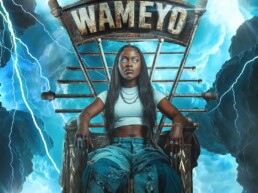The influence of Drill music in Kenya can be seen through things such as the dress code of many youths today. Step into the business district in Nairobi and you might catch a glimpse of a young man/woman wearing baggy denim jeans, a hoodie, and a balaclava. The genre’s influence has also had an effect on the daily conversations of many Kenyan youths who have assimilated many of the words used in Drill music into their vocabulary. You might hear words such as “Ps” used as a synonym for money among Drill music lovers. Drill music has created a platform for all to air their uncensored grievances towards society.
Drill music was first introduced in Kenya in 2018. I think it would be disingenuous to associate one artist or one group with the introduction of Drill music in Kenya. Fast forward to 2023, and Drill music has become quite popular in Kenya, especially amongst the youth. Since its introduction, the Drill music scene in Kenya has seen the rise of artists such as Buruklyn Boys, who came into the limelight in 2019, Silverstone Barz, GTA, Big Yasa, Natty, Dyana Cods, 8th Street Gang, and Wakadinali, known for their hit song ‘Geri Inengi’. Kenyan artist Wangechi has also been capturing the hearts of Kenyan Drill music fans. Wangechi is not new to the game. She has been in the industry for quite some time. Rocking up to the Drill scene with her certified bangers is just another day in the office.
Buruklyn Boyz and Wakadinali in particular have had moderate success winning over fans due to their gritty, unapologetic, and authentic portrayal of life in Kenya. The two groups have been battling it out for the top spots in music charts, each decisively proving why they deserve a spot on our daily playlists. Their music talks of the challenging experiences which the artists have had to endure growing up in the hood, and how they’ve turned their situation around and made the most of it and established themselves as major household names in the Kenyan music industry and arguably in Africa as well. Each of the groups have performed to thousands of fans in successful events around various parts of the country. Through their music, the Kenyan artists have built loyal fanbases across all age-groups who are consistently ready to support the artists whenever there is an event to attend or a new album to stream.
As popular as it has become in recent years, Drill music has not had a smooth ride. It has been the talk of many critics who consider the genre chaotic and advertising violence. The critics argue that Drill music artists are not just confronting violence, “they are glorifying, perpetuating and even profiting from it.” says one Kenyan music critic we spoke to about Drill music in Kenya. “In a way, we’ve become too numb and desensitized to the literal words that are being spoken in this music” remarked American rapper Lupe Fiasco in an article I read recently. The Drill music genre has been accused of influencing the youth to get involved in crime and violence. The Drill music industry in Kenya for that very reason is heavily policed by the Music Society Of Kenya as well as the Directorate of Criminal Investigations where government sleuths have expressed suspicions that some of the Drill artists in Kenya are involved in real violence acts. This in turn has made difficult the efforts of many Drill artists in Kenya who wish to grow the genre internally and internationally. The circumstances surrounding the genre have in turn pushed this music genre underground away from legitimate venues. However, there is no evidence to support the claims that Drill music causes crime.
Kenyan Drill reflects the lives of youths, doing so in a fictional narrative that overemphasizes ‘gangsta’ credentials. It is unlikely to turn anyone who was originally peace-loving to crime. The genre’s fans and practitioners argue that it is only by confronting the darkest truths of modern life and showcasing the most deprived, desperate and violent elements of society that their art can resonate authentically with the millions of youth in a similar “marginalized” state both in Kenya and across the world in general. ”This is music the local people can relate to”, says Domani Munga, a member of the Kenyan music group Wakadinali. ”They know these are things which happen everyday.” Other artists in the industry such as Big Yasa argue that Drill music is not only one of the best ways for poor ‘hood families’ to let people know what’s happening in their neighborhoods, it is also a way for them to exorcise all the negativity from their communities. Many other Kenyan artists have made the case that Drill music should be supported rather than seen as a cause of chaos in the society.
While drill music in the country continues being policed, its global rise as a mainstream genre feels inevitable. The Drill music industry in Kenya is already receiving a great deal of attention. The future of Kenyan Drill music is one to look forward to. It is raw, inviting the world to take in and feel the vicious tales from Kenya’s ghettos. Will it become a household genre and stand the test every other genre before it has had? Only time will tell.




